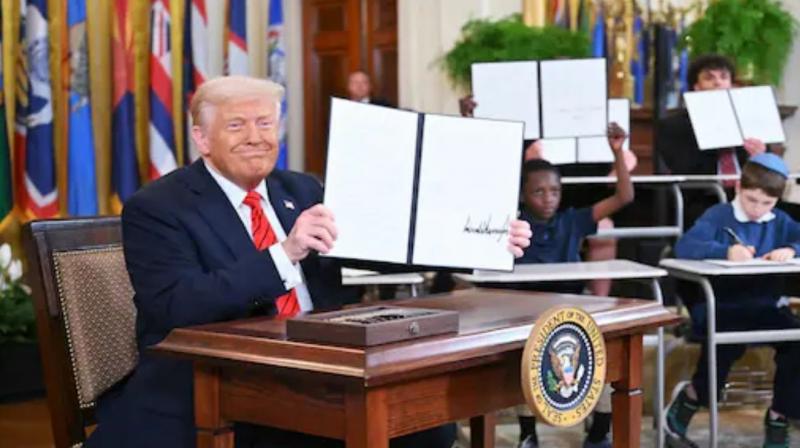
The Department of Education, founded in 1979, has long been a bulwark against inequities in the American education system.
Trump Signs Executive Order to Dismantle Department of Education: The Trump administration's decision to dismantle the Department of Education has sparked widespread concern and debate, particularly among advocates for educational equity. This move, framed as a step toward returning control to states, has left many questioning the future of federal oversight in ensuring equal access to education for all students.
The Department of Education, founded in 1979, has long been a bulwark against inequities in the American education system. Its charge to advance equal educational opportunities has served as a beacon, particularly for historically disadvantaged groups like low-income students, English learners, students with disabilities, and racial and ethnic minorities. The argument against abolishing the department is that it could lead to an "underclass of students," as Center for American Progress's Weadé James articulated.
Education Secretary Linda McMahon, who is responsible for managing this transition, has seconded President Trump's notion of working herself "out of a job." The administration's rationale rests on the premise that federal intervention has not produced the desired academic performance, pointing to low reading and math proficiency among students. Yet, the department's supporters point to its status as a "north star" for schools, offering necessary guardrails and investments to ensure equitable outcomes.
Perhaps the most disputed part of this ruling is the future of federal funding, such as Title I, which is used to finance schools in areas of high poverty. Those in favor fear diverting these dollars to states under the control of state governments alone could cement entrenched inequalities. Federal-aid-reliant states like Mississippi and South Dakota stand to be substantially harmed if the priorities for money change.
The administration's activities go beyond budgeting. The recent cancellation of the contract for the Equity Assistance Center-South has been criticized as an undermining of efforts to end educational inequities in the Southern states. Raymond Pierce of the Southern Education Foundation called the action an abandonment of the government's role to offer more opportunities for education.
While some view decentralization as the key to a brighter future, others anticipate loss of an advocate for students with disadvantages within the federal umbrella. The discussion reflects the intricate process of meeting the demands for both state control and a singular pledge to equal opportunities in schools. As the nation observes the never-before experiment evolving, only time will tell who will now promote the interest of the neediest students under an unseamless regime?
(For More News Apart Trump Signs Executive Order to Dismantle Department of Education stay tuned to Rozana Spokesman)














